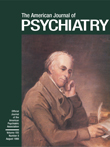Sustaining the Effect of Sleep Deprivation
TO THE EDITOR: The June 1997 issue of the Journal featured an article (1) concerning the possibility of sustaining the acute effect of total sleep deprivation with a subsequent 1-week sleep phase advance therapy in drug-free and amitriptyline-nonresponder patients. Given the high response rates, the rapidity of action, and the short duration of the proposed treatment, this report raises high clinical interest and several issues.
Do total sleep deprivation and sleep-wake rhythm manipulations trigger remission from the depressive episode, or do they cause only transient positive mood fluctuations? Several nonpharmacologic strategies have been proposed to sustain the effect of total sleep deprivation, and simple serial repetition of total sleep deprivation prevents short-term relapse among drug-free depressed patients (2). In agreement with the literature (3), however, we observed a subsequent relapse among unmedicated patients after a variable delay. Moreover, total sleep deprivation has been shown both to hasten the antidepressant action of fluoxetine in previously unmedicated patients (4) and to trigger a sustained response in fluoxetine nonresponders (5). Similar effects could have occurred with unmedicated patients and nonresponders to amitriptyline, and differences between groups might have been revealed later in the course of the depressive episode.
Does the unipolar/bipolar dichotomy influence the effect of manipulations of the sleep-wake rhythm? When strictly defined diagnostic criteria are applied, bipolar 1 patients show better responses than unipolar patients to total sleep deprivation (6, 7). The same may be true for the effects of sleep phase advance.
REM sleep deprivation is a powerful antidepressant treatment, and REM pressure follows a circadian rhythm. Could changes in sleep architecture explain the clinical effect of sleep phase advance?
A discussion of these issues will help in evaluating the clinical usefulness of this new technique.
1 Berger M, Vollman J, Hohagen F, König A, Lohner H, Voderholzer U, Riemann D: Sleep deprivation combined with consecutive sleep phase advance as a fast acting therapy in depression: an open pilot trial in medicated and unmedicated patients. Am J Psychiatry 1997; 154:870–872Link, Google Scholar
2 Benedetti F, Barbini B, Campori E, Colombo C, Smeraldi E: Dopamine agonist amineptine prevents the antidepressant effect of sleep deprivation. Psychiatry Res 1996; 65:179–184Crossref, Medline, Google Scholar
3 Leibenluft E, Wehr TA: Is sleep deprivation useful in the treatment of depression? Am J Psychiatry 1992; 149:159–168Google Scholar
4 Benedetti F, Barbini B, Lucca A, Campori E, Colombo C, Smeraldi E: Sleep deprivation hastens the antidepressant action of fluoxetine. Eur Arch Psychiatry Clin Neurosci 1997; 247:100–103Crossref, Medline, Google Scholar
5 Leibenluft E, Moul DE, Schwartz PJ, Madden PA, Wehr TA: A clinical trial of sleep deprivation in combination with antidepressant medication. Psychiatry Res 1993; 46:213–227Crossref, Medline, Google Scholar
6 Szuba MP, Baxter LR, Fairbanks LA, Guze BH, Schwartz JM: Effect of partial sleep deprivation on the diurnal variation of mood and motor activity in major depression. Biol Psychiatry 1991; 30:817–829Crossref, Medline, Google Scholar
7 Barbini B, Benedetti F, Campori E, Colombo C, Smeraldi E: Differential effect of total sleep deprivation in unipolar and bipolar depression (abstract). Biol Psychiatry 1997; 42(suppl 1):109SGoogle Scholar



